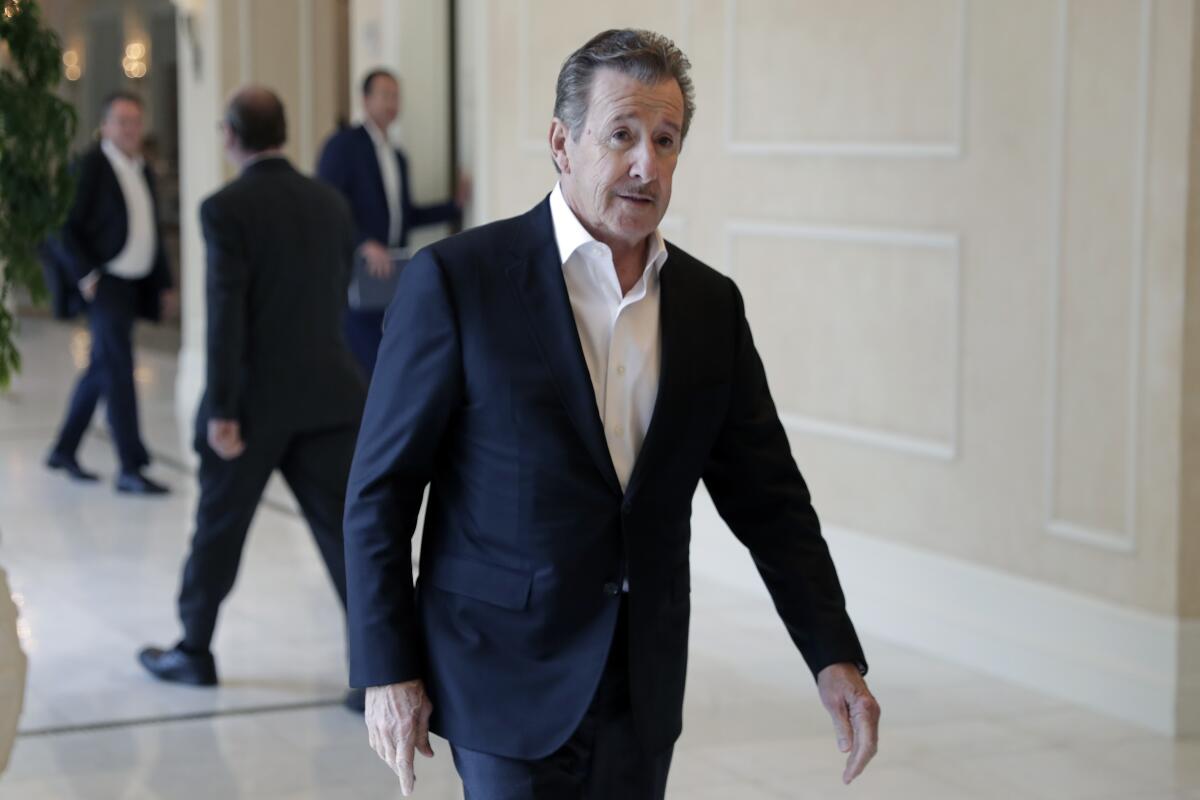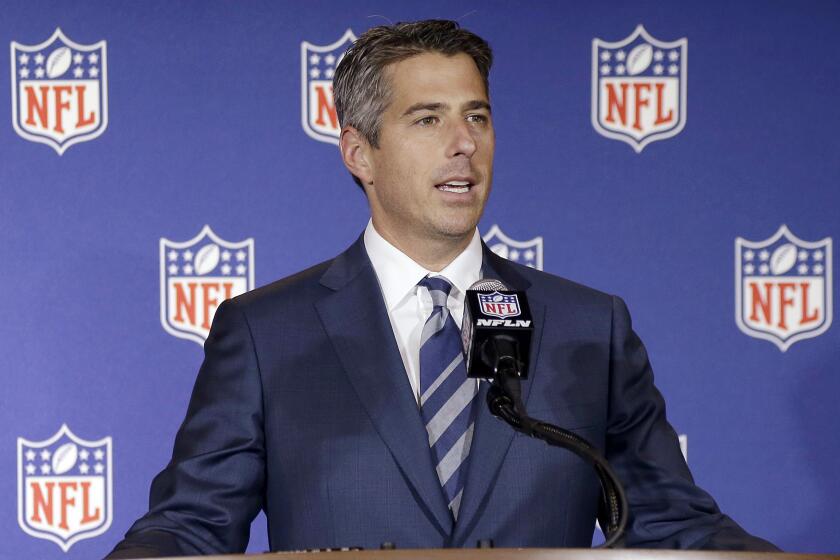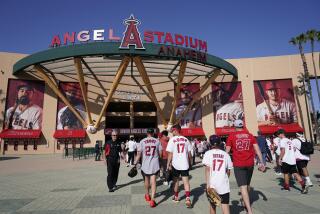Angels owner asks Anaheim for extra time to deliver stadium development plan

- Share via
Angels owner Arte Moreno on Friday asked the city of Anaheim for an additional 30 days to explain precisely how he would like to develop the Angel Stadium property.
His family-owned management company had committed to deliver a plan for the 153-acre site no later than Saturday. Mike Lyster, the spokesman for the city, said the city manager could approve the request as a “non-substantive” change to the sale agreement, with no City Council vote required.
In December, the council approved the $325-million sale, enabling Moreno to decide whether to renovate the current stadium or build a new one. That deal envisions a reduction in the final purchase price, depending on what affordable housing, open space and community benefits Moreno’s company is willing to include in a development agreement.
The company had agreed to a May 30 deadine to submit a site plan, which a city official has said would include projected locations for such major elements as parking structures, residential and commercial zones, roadways and open space.
Casey Wasserman, leader of the sports and entertainment division of an L.A. county task force, authored the plan along with all nine major pro sports teams.
That date would be extended to June 29, but the deadline for Moreno to walk away from the project would remain Sept. 30. Angels spokeswoman Marie Garvey said project planning has been slowed as consulting firms have transitioned to work-from-home settings and limited face-to-face meetings.
The site is 1½ times the size of Disneyland. According to a study Moreno commissioned before the sale to evaluate potential development opportunities, more than 4,000 apartments and 700 condominiums could be built on the site, plus a hotel with more than 900 rooms and offices that would employ 15,000 workers.
The study also envisioned full-service and fast-casual restaurants, a beer garden and wine bar, a grocery and drug store, merchandise retailers, fitness and recreational centers and social spaces. The total project was estimated to cost $3.4 billion, with development in stages through 2050 and eventually covering 1.1 million square feet.
More to Read
Go beyond the scoreboard
Get the latest on L.A.'s teams in the daily Sports Report newsletter.
You may occasionally receive promotional content from the Los Angeles Times.








